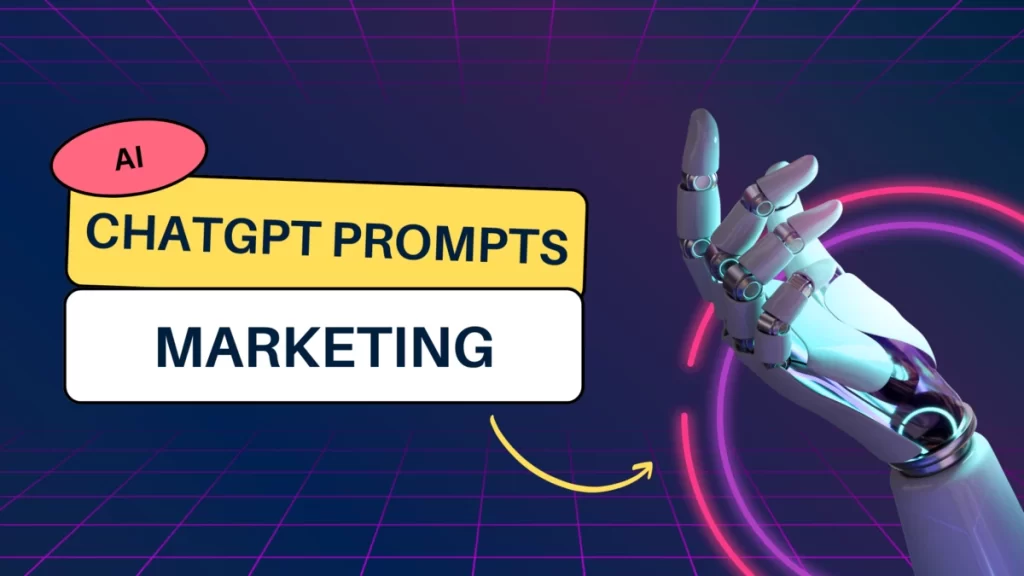Best ChatGPT Prompts for Students. In the realm of learning and personal development, prompts play an integral role for students. Not merely confined within the educational boundaries, these prompts often lead to a journey of self-discovery, inspiration, and critical thinking. By delving into three main categories: inspirational, educational, and reflective prompts, students have the opportunity to challenge their perspectives, reinforce their knowledge, and navigate through their emotions and experiences. Tapping into these prompts, students are encouraged to engage in a deeper level of introspection, to stretch their intellectual boundaries, and to foster a higher sense of self-awareness.
Inspirational Prompts
Inspiring a Deeper Dive into Passions
Whether it’s arts, sports, science or a unique hobby, each student likely possesses a personal passion. Encourage them to delve deeper into their interests with a prompt like, “What are you most passionate about and why?” or “Explain how you first discovered your passion.” You could also use motivational prompts such as “How has your passion influenced or changed your view on life?” and “How do you plan to incorporate your passion into your future plans?”
Thoughts on Leadership
A student’s perspective on leadership can be quite telling and insightful. Start by asking, “What qualities do you believe make a good leader?” or “Share a time when you had to take on a leadership role. What challenges did you face and how did you handle them?” To push deeper, ask, “Who do you admire as a leader and why?” or “How does one develop leadership skills?”
Defining Success
Success is an individual journey, and there’s no one-size-fits-all answer. To help students think outside the box, ask them, “How do you define success?” or “Share a time when you felt successful – what factors contributed to that feeling?” For a different angle, ask, “Can success and failure coexist? Explain your answer.” These prompts will encourage introspection and veer away from traditional definitions of success.
Life Philosophy Explorations
A person’s life philosophy is shaped by their experiences and perspectives. Prompt students to delve into this topic by asking, “What principles guide your life and why?” or “How have your experiences shaped your life philosophy?” Alternatively, you could ask them, “What event in your life radically changed your perspective?” Not only will these prompts inspire students, but also give them deeper self-awareness.
Living a Fulfilled Life
To inspire students and allow them to express their thoughts and dreams, ask them, “What are three things you would like to achieve before turning 30?” or “If you could write a letter to your future self, what advice or hope would you convey?” Furthermore, questions like “What does living a fulfilled life look like to you?” or “What steps are you taking to live a life of purpose?” will encourage an exploration into their aspirations and goals.
Each prompt generates thought and inquiry into the student’s personal beliefs and motivations. As students answer these prompts, they give thought to their self-concept, their goals, and their motivations, creating a deeper self-understanding and a drive to achieve their goals.

Educational Prompts
The Power of Educational Prompts: Strengthening Knowledge and Critical Thinking
Engaging chatbot interactions require thought-provoking prompts that can stimulate intellectual curiosity. Educational prompts do just that, aiming at enhancing knowledge and encouraging learning. These prompts can take various forms and cover a wide array of subjects, including science, history, math, and literature.
Prompts Based on Science
Prompts based on scientific concepts can encourage students to explain and discuss related facts or theories they have learned. For instance, asking, “What factors contribute to climate change and what can we do to mitigate its effects?” This not only reinforces theoretical understanding but also develops practical application skills.
History-related Prompts
For history-related prompts, students might be asked to analyze key events or eras. An example might be: “Describe the impact of the Industrial Revolution on society and economics in 19th century England.” This draws upon their ability to recall, analyze, and draw conclusions from historical data.
Math-based Prompts
Math-based prompts often provide students with problem-solving tasks that both challenge and strengthen their computational thinking skills. These can range from basic arithmetic queries, like “Can you solve this equation?” to more complex mathematical problem statements, which require critical thinking and a solid grasp of mathematical concepts.
Literature-centered Prompts
Literature-centered prompts frequently involve discussions about famous literary works, their themes, characters, or narrative style. Something like “Discuss the character development of Elizabeth Bennet in Pride and Prejudice,” allows students to express their understanding of the characters and the opportunities they have for growth within the novel.
Diverse Forms of Educational Prompts
These are just a few examples of how educational prompts can be formulated. The ultimate goal is to encourage critical thinking, reinforce what’s been learned in school, and make knowledge acquisition an interactive and dynamic process. Regardless of the subject matter, well-crafted prompts are a valuable teaching asset that can transform the learning experience for students.

Reflective Prompts
Reflective prompts are incredibly powerful tools that can be leveraged by educators to encourage students to not only introspectively look at their own learning experiences but also cultivate strategies for future success. Opening the portal to introspection, reflective prompts can guide students towards understanding their learning styles, grappling with challenges, celebrating their achievements and visualizing their future courses.
Unfolding the Self
Reflective prompts may require students to journal or write about their feelings, helping them to understand and regulate their emotions. For instance, a prompt like “Describe a time when you felt extremely frustrated while learning. What were the circumstances and how did you handle it?” This can not only help students identify their feelings of frustration, but also analyze their coping mechanisms, thereby encouraging them to develop better strategies to handle similar situations in the future.
The Learning Arc
Sometimes, reflective prompts focus on students’ behaviors, challenging them to think about their habits and routines that impact their learning. This could involve questions such as, “What are some learning habits you’ve developed that help you retain information?” The answers to such prompts can help students ascertain their best learning practices and further refine or enhance them.
Interrogating Strategies
Reflective prompts might also center on students’ strategizing, asking them to delve deeper into their planning and problem-solving approaches. A prompt such as, “Describe a time you had to solve a challenging problem. What strategies did you use and how effective were they?” This aids in promoting critical thinking skills and encourages students to think analytically about their decision-making and planning processes.
Crossroad of Achievements and Challenges
Reflective prompts often play a crucial role in evoking students’ attitudes towards their own accomplishments and setbacks. Having students respond to a prompt like, “Discuss an achievement you’re proud of and the challenges you overcame to reach that”, can boost their self-confidence. Simultaneously, it helps them identify the hurdles they’ve successfully navigated, further instilling resilience.
Fast-forward to Future
Lasty, reflective prompts may elicit students’ visions of their own futures, connecting the dots from the present experiences to their future journeys. For instance, asking “How do you see your current learning experiences shaping your future academic or professional goals?” can guide students to trace the trajectory from their current standing to their desired goals. Reflective prompts of this nature allow students to draw much-needed connections, giving a sense of direction and purpose to their learning.

Conceptually layered, these three types of prompts – inspirational, educational, and reflective – indeed serve as catalysts in the growth matrix of a student. Acting as mirrors reflecting their personality, encouragers pushing their limits, and tools consolidating their learning – these prompts often harvest a plethora of insights. It is through these incisive, thoughtful inquiries that students can meaningfully define their life philosophy, get a stronger grasp of subjects, and critically evaluate their attitudes and strategies. Therefore, it is no understatement that these prompts act as the stepping-stones that can guide students in navigating the labyrinth of knowledge and personal growth with aplomb.


